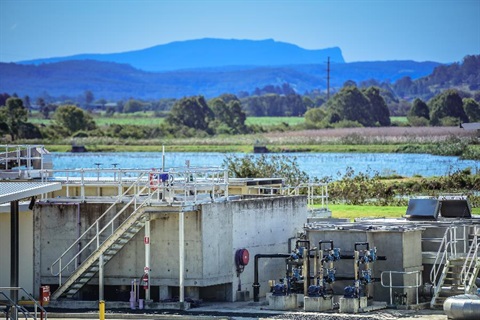On-site sewage

On-site sewage management systems, such as septic tanks, aerated waste treatment systems, and greywater irrigation systems, are required in areas without sewer access. These systems treat wastewater and the end product, effluent, is then disposed of in designated areas.
In NSW, legislation and guidelines are in place to prevent risks to public health, environmental damage, and community nuisances. Approval must be obtained before installing or altering an on-site sewage management system and applications must be submitted through the NSW Planning Portal.
Technical components, such as topography and soil type, must be addressed by a qualified consultant to ensure the system is sustainable. Council has a strategy and an excel spreadsheet to guide the design and maintenance of these systems.
More information about on-site sewage management can be found via the Division of Local Government.
Everyone must have an approval to operate
Everyone must have an approval to operate an on-site sewage management system. Most new systems would be given approval to operate upon installation but all existing systems also need this approval.
All new homeowners will require a new approval to operate as this expires upon the sale of a house or property. Council will contact new owners in regard to this.
Different types of on-site sewage management systems
There are several on-site sewage management systems including waterless composting toilets, aerated wastewater treatment systems, septic tank and absorption trench systems and reed beds. See below our education brochures to help you make the right choice for your property or household.
On-site sewage management systems inspections
Council inspects all on-site sewage management systems to ensure compliance with standards for public health, the environment, and community living. Inspections are done on a street-by-street basis and owners are notified in writing beforehand.
Inspections are also conducted when malfunction or potential public health or environmental issues are reported. Improvement notices or orders may be issued for necessary repairs or actions following inspections. Council's Compliance Officers provide advice and information for upgrading existing systems and installing new ones.
What to do after a flood
This document provides information and advice on OSSMS (septics, Aerated Wastewater Treatment Systems [AWTS], Reed Beds etc.) and Land Application Area (LAA) care after a flood.
Pre-purchase inspections
While we do specify a designated cost in the fees and charges, we would like to clarify that Council currently does not plan to conduct pre-purchase inspections. This decision is influenced by several factors. Instead, we advise customers to enlist the services of a licensed plumber or wastewater consultant for such inspections, as they possess the essential equipment and expertise required for this type of work.